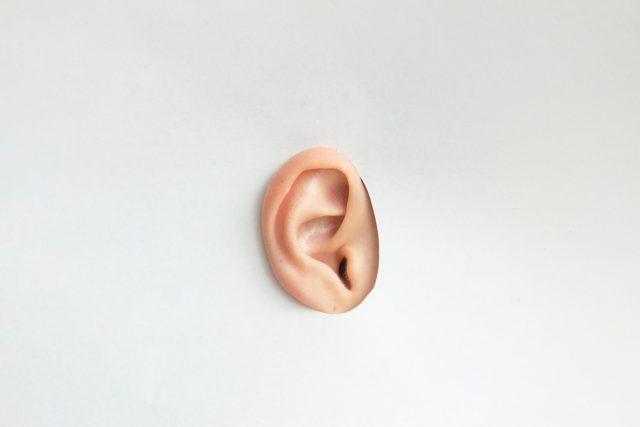Ear Infection Basics
Ear infections are one of the most common health problems for both children and adults. The ear is a sensitive organ, and an infection can cause pain and discomfort, as well as a long-term hearing loss if left untreated. Knowing the basics about ear infections can help you recognize and address them promptly. This article will provide information on the types of ear infections, how to identify symptoms, and the treatment options available.
Symptoms of Ear Infection
Ear infections are a common problem, particularly among young children. Symptoms of an ear infection can range from mild to severe and can be uncomfortable to deal with. It is important to recognize the signs of an ear infection in order to get treatment as soon as possible. The most common symptom of an ear infection is a pain in the ear area, often accompanied by fluid drainage and fever. Some people may also experience hearing loss or have difficulty sleeping due to ear pain or discomfort. Other symptoms include dizziness, itching, ringing in the ears, and even swelling around the affected area. If any of these symptoms occur, it is important to seek medical advice as soon as possible for proper diagnosis and treatment.
Causes of Ear Infection
Ear infections are a common health issue, especially in children. An ear infection typically occurs when bacteria or viruses enter the middle ear — the air-filled space between the eardrum and the inner ear. The most common cause of ear infections is a virus, such as the flu or cold virus. In some cases, an allergy can also trigger an infection in the ears, which is known as otitis media with effusion (OME). When bacteria or viruses reach this body area, they can cause inflammation and fluid buildup that leads to pain, fever, and hearing loss. Other risk factors for developing an ear infection include being around cigarette smoke, having frequent upper respiratory infections like sinusitis, and attending daycare at a young age. Babies’ Eustachian tubes are shorter than adults’, so they are less resistant to bacteria entering their inner ears.
Prevention Tips
Ear infections can be painful and annoying, but they don’t have to be an unavoidable part of life. Taking care of your ears through prevention is key to avoiding infection. Here are some tips on how to keep your ears healthy and infection-free: First and foremost, keeping your ears clean is the best way to avoid infection. Make sure to use a clean cloth or cotton swab when cleaning out your ear canal. Be careful not to insert anything too deep into the ear as this can cause damage or increase susceptibility to infection. Additionally, swimming can be a great source of exercise; however, it also brings a risk of water entering the ear and leading to an increased chance of infection. To prevent water from getting inside your ears while swimming, wear swimmer’s plugs or put a few drops of mineral oil in each ear before entering the water.
Home Remedies for Infected Ear
Ear infections can be painful and uncomfortable, but luckily various home remedies can help provide relief. Whether a bacterial or viral infection causes the infection, it is essential to take action to reduce swelling, itching, and discomfort in the ear. Home remedies for an infected ear can range from natural treatments like garlic oil or vinegar to over-the-counter pain medications. Below are some of the most popular home remedies for relieving symptoms of an infected ear:
One method of treating ear infections naturally is by using warm compresses. Applying a warm compress to the affected area can help reduce swelling and relieve pain.
Garlic oil has long been used as a remedy for treating ear infections due to its antibacterial properties. To use garlic oil as a treatment option, heat one teaspoon of crushed garlic cloves in two tablespoons of sesame oil until it becomes warm. Once cooled off, strain out the garlic pieces and apply several drops into the affected ear twice daily until symptoms improve.
Herbal teas are another excellent remedy for reducing ear inflammation due to an infection.
Diet and Lifestyle Changes

Diet and lifestyle changes can make a world of difference in the health of your ears. If you are looking for a natural remedy for an ear infection, some dietary adjustments have been known to help. The first step is to reduce your intake of processed foods, which are believed to contribute to the inflammation associated with ear infections. Additionally, avoid dairy products since they can also cause inflammation. Including more anti-inflammatory foods such as fruits and vegetables in your diet is also important. These will provide essential vitamins and minerals to bolster your immune system’s ability to fight infections naturally. Furthermore, adding probiotics into the mix is beneficial because they promote gut health which is linked with overall better immune system functioning.
When to See a Doctor
Knowing when to see a doctor for an ear infection is important. Ear infections can cause severe discomfort and, if left untreated, can lead to further complications. The following are some of the signs that indicate it is time to visit a healthcare professional for an ear infection: A persistent feeling of fullness in the affected ear, pain or pressure in the ear, difficulty hearing or hearing loss, drainage from the ear (which may contain pus), ringing sound in the ear (tinnitus), dizziness or vertigo, and fever. If you experience any of these symptoms for more than a few days, then it is time to see a doctor; they will be able to diagnose your condition and provide appropriate treatment. In addition, children should be seen by their healthcare provider if they display any of these symptoms.
Treating an Ear Infection
In conclusion, ear infections can be unpleasant and uncomfortable. If you think that you or your child may have an ear infection, it is important to visit your doctor for diagnosis and treatment. With the proper diagnosis and treatment plan, ear infections can usually be effectively treated with antibiotics or other medications. It is important to follow the instructions for taking your medicines exactly as prescribed. Additionally, it’s also essential to ask your doctor any questions or concerns that you may have about potential treatments.






























